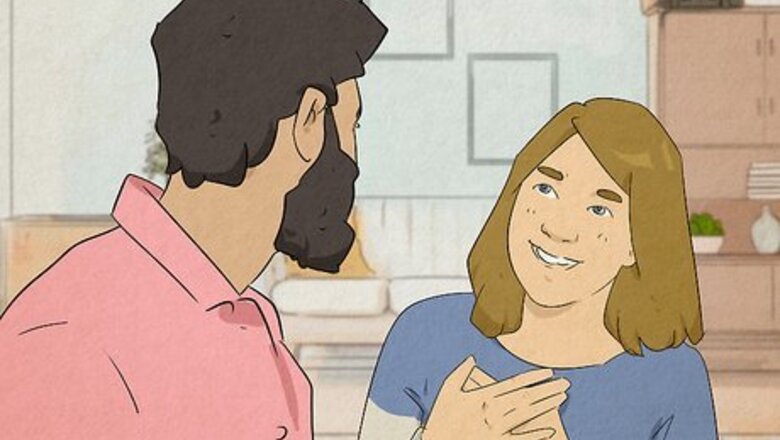
views
“I’m so grateful.”
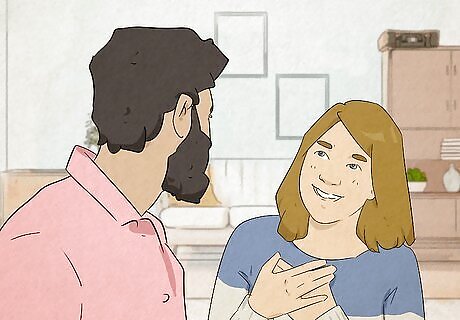
“Thank you” isn’t the only way to show your appreciation. At the end of the day, “thanks” and “thank you” are just shorthand for saying “I’m grateful.” Be specific about what you’re grateful for the next time someone does you a favor, whether they walked your dog, covered your shift, or sent you a friendly text when you were feeling down. As an added bonus, “I’m so grateful” is an easy, effective way to sound more genuine. You might say: “I’m so grateful that you’re able to come over.” “I’m so grateful for your help with that overtime assignment.” “I’m so grateful for your kind words.”
“I really appreciate this.”
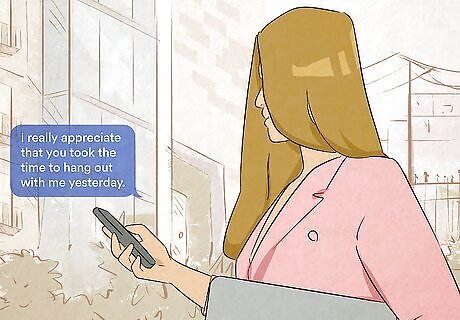
Specify what the other person did that you appreciate. “Appreciate” is a great replacement for the usual “thanks,” and it makes it way easier to be thorough and specific about what you’re trying to say. The next time someone gives you a compliment or does you a favor, you could say something like: “I really appreciate that you took the time to hang out with me yesterday.” “I really appreciate you letting me borrow your umbrella. I left mine at home, and it’s a three-block walk to my car.” “I appreciate you watching my cat over the weekend.”
“You’re such a lifesaver.”
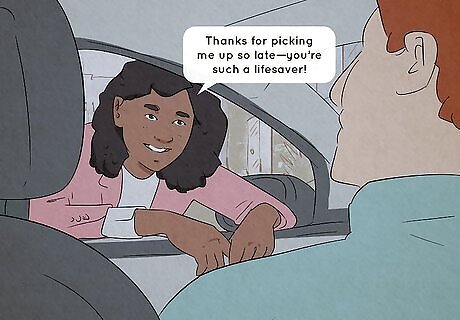
Let a friend, relative, or co-worker know that they really came through. A simple “thank you” is nice, but it doesn’t let the other person know what their gesture really meant to you. Telling someone that they’re a lifesaver, on the other hand, paints a crystal clear picture. You could say things like: “I appreciate you dropping my driver’s license off at the office for me. You’re a real lifesaver.” “Thanks for picking me up so late—you’re such a lifesaver!” “I don’t know what I would’ve done if you hadn’t shown up. You’re a lifesaver!”
“I couldn’t have done this without your help.”
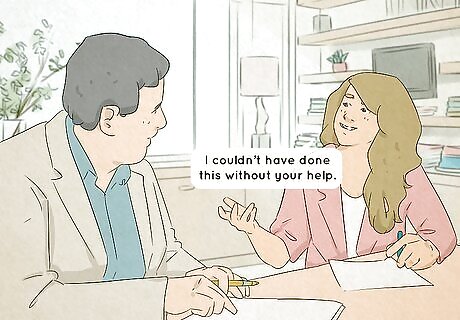
Remind them that their help and contributions are invaluable to you. Explain what exactly they helped you with, and how long it would’ve taken you to finish on your own time. Here are a few examples: “This assignment would’ve taken me at least a week to finish on my own. I couldn’t have this without your help.” “I appreciate you stopping by over the weekend. I couldn’t have unpacked all of my Christmas decorations without your help.” “It means a lot that you donated to my campaign. I couldn’t have done any of this without your help and support.”
“How can I return the favor?”
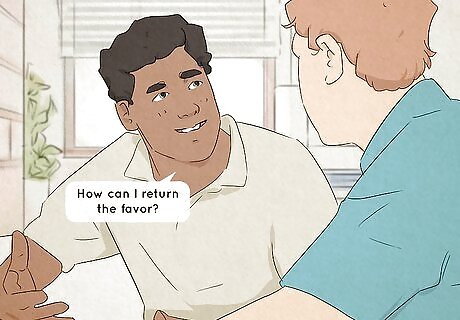
Demonstrate how grateful you are instead of just saying “thank you.” Show that you’re glad to help them out, whether it’s buying them a coffee or volunteering to pull some weeds in their yard. You could say: “I really appreciate you spotting me for lunch. How can I possibly return the favor? “It means a lot that you finished up that report for me. How can I repay you?” “I appreciate you covering my part of the group project. Is there any way I can make it up to you?”
“You’ve made this project much easier.”
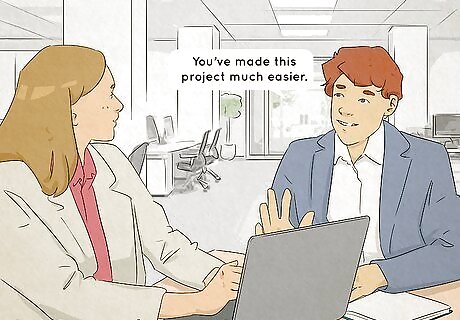
Explain how their contributions made a positive difference in your day. “Thank you” is a nice thing to say, but it doesn’t paint a picture of how the person helped or why you’re thankful in the first place. Explain exactly what they helped with, and how that extra help made a difference in the end. Here are a few ideas of what to say: “Your hard work really saved us a lot of time on this project, Kelsey.” “You’ve made this easy, Josh. Now we can submit the publication 2 days before the deadline.” “You made this project so much easier. Now we can leave work earlier!”
“You’re so helpful!”
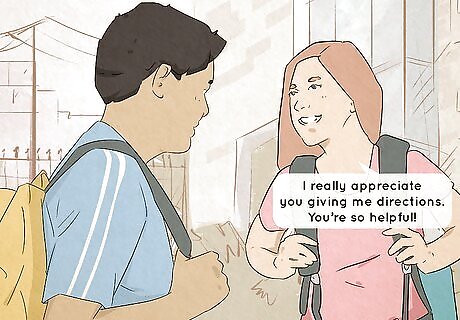
This is a great way to compliment someone and say “thanks.” Describe what the person helped you with, and how their extra guidance really save the day. They’ll be touched to know that they were able to make a difference! You might say: “Wow, you really know your computers. You’re so helpful!” “I really appreciate you giving me directions. You’re so helpful!” “I’m really grateful that you looked over my paper. You’re so helpful!”
“I can’t thank you enough.”
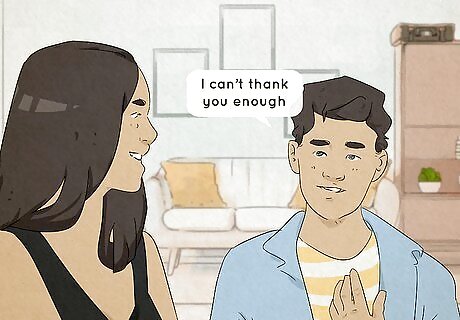
This is a great way to explain what a difference someone made. Maybe a kind stranger returned your wallet, or your boss let you reschedule an important meeting. “I can’t thank you enough” works well in a variety of different situations, and is a great replacement for the traditional “thank you.” Here’s what you might say: “I can’t think you enough for your help with the garage sale this weekend.” “I really appreciate you babysitting Jon at the last minute. I can’t thank you enough!” “I can’t thank you enough for all of your help on the magazine layout.”
“That really made my day.”
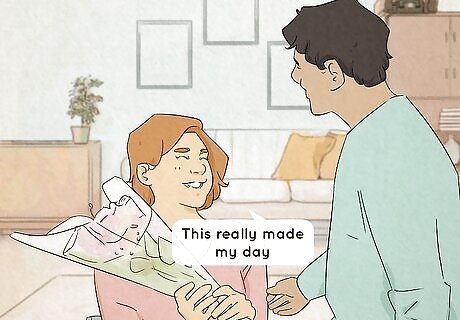
Let the other person know that their kind words had a big impact. Telling someone that they “made your day” places a huge amount of worth on whatever they said or did. Here are some examples: “That’s such a kind thing to say! You really made my day.” “I can’t express how much that means to me. That truly makes my day!” “Wow, that is so unbelievably nice of you. You absolutely made my day!”
“I have to give you some of the credit here.”

True gratitude means knowing what you did and didn’t do. Maybe a co-worker put in a lot of hours on a company assignment, or a classmate really shouldered some of the weight for a group project. Deferring credit not only shows how grateful you are for the person’s help, but also makes you look like a kind, humble person in the process. You could say: “I really have to give Amber some of the credit here. She worked overtime to make sure that the website release was as high-quality as possible.” “That means a lot, but I can’t take all of the credit for this. Mel put in just as much work as I did, and was an invaluable part of the team.” “I have to give you some of the credit here. If you didn’t help me shovel, my driveway would still be waist-deep in snow right now.”
“I’m really impressed!”
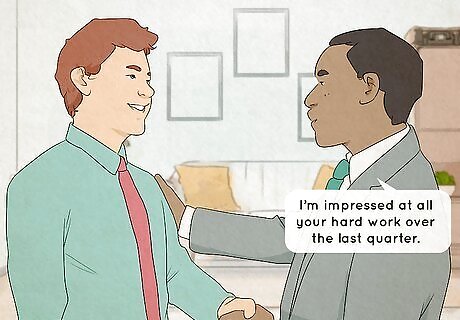
Transform your “thank you” into a kind compliment. Sure, a compliment isn’t quite as direct as saying “thanks” or “thank you”. Still, the other person is sure to remember and treasure your heartfelt words for a while. Here are a few things you might say: “I can’t believe you finished that up in less than 2 hours. I’m really impressed!” “I’m impressed at all your hard work over the last quarter.” “I’m really impressed at this piece of artwork you made for me! You’re so talented.”
“I’m beyond grateful.”
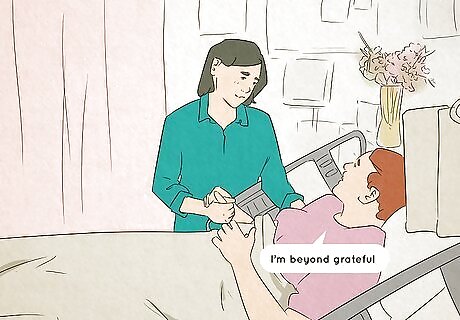
Remind the other person that you won’t soon forget about their help. Explain what exactly the person did or said, and why that gesture means so much to you. Here are some examples of what you could say: “It means so much that you visited me in the hospital. I’m beyond grateful to have you as a friend.” “I was getting really swamped with assignments, and I’m beyond grateful that you were able to step in.” “I’m beyond grateful that you let me use your car while mine was in the shop.”
“I’m blown away by your generosity.”
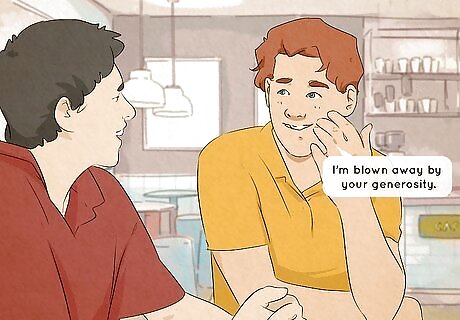
Remind them that their kind gesture won’t soon be forgotten. Some acts of kindness warrant way more than a quick “thank you” or “thanks so much.” If someone really goes the extra mile for you, “I’m blown away by your generosity” is a great way to share just how thankful you are. You might say: “It was so kind of you to send a donation after my mom got sick. I’m really blown away by your generosity!” “I can’t believe that you and Shelly put this surprise birthday party together for me. I’m blown away by your kindness!” “I couldn’t believe my eyes when I saw the gift card in my inbox. I’m truly blown away by your generosity.”
“Much appreciated!”
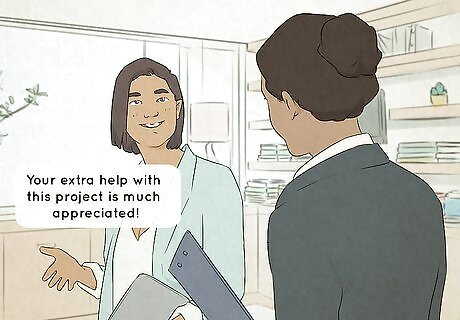
This language works great in a workplace setting. Maybe a co-worker volunteered to look over your assignment, or your boss gave you an extra day to finish up with a project. Regardless, “much appreciated” is a short but sincere way to show your gratitude. You might say: “Your extra help with this project is much appreciated!” “Your kindness and understanding are much appreciated!” “This extension is much appreciated!”
“Thanks in advance!”
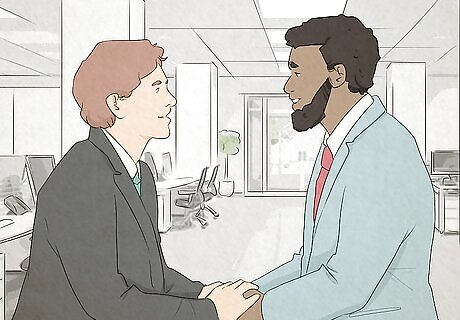
Change things up by saying “thanks” before someone does you a solid. There’s no etiquette law that forces you to say thanks after the kind deed is done. You can say thank you at any time, as long as you’re clear about what you’re grateful for. Here are some examples: “I really appreciate you taking care of my plants for me while I’m away. Thanks in advance!” “Thanks in advance for picking up my mail for me.” “It means a lot that you’re willing to tutor me next weekend. Thanks in advance!”



















Comments
0 comment